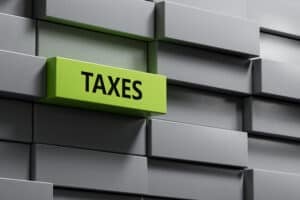Why should women pay more for the same product or service just because it is pink or meant for women? It is pink tax.

Not many consumers know what pink tax is and why women are the ones who have to pay it, but for almost 31 million South Africans it is almost normal to see that a supermarket charges more for pink razorblades than for the blue ones.
Sanlam’s recent survey of more than 400 participants found pink tax or gender-based pricing discrepancies for similar products and services, remains pervasive, with 53% of women respondents saying they encounter it sometimes and 19% that they see it often.
Farzana Botha, senior communications manager at Sanlam, says women must use their significant buying power to fight pink tax for equality.
ALSO READ: Pink Tax: Why is Clicks charging more for a blue brush than a pink one?
Most industries hiding pink tax somewhere
“Pink tax is hidden in most industries and has a profound impact. Women, who already face a gender pay gap, must allocate a larger portion of their income to higher-priced goods and services. This disparity is exacerbated by the fact that women often head households and have longer life expectancies.
“Consequently, the pink tax contributes to a cycle of financial strain that affects not only individual women but also their families and future generations.”
However, she says, women wield immense power to axe the tax. “Maps data found that 58% of women make their household’s daily purchasing decisions, with particular weight when it comes to child- and medical-related products.
“Additionally, 65% of South Africa’s single-parent homes are headed by women. By raising awareness of pink tax and using our purchasing might to push for parity, we can and will create change.”
ALSO READ: ‘Prisoners of patriarchy’ – South African women are still in shackles
How much women (and men) know about pink tax
These key findings from Sanlam’s Pink Tax survey should spur women into action:
- Out of 446 survey participants, 335 (75%) were unaware of pink tax. Just 20% of men had heard of it and 30% of women.
- 37% of women said they noticed they were paying more for a product or service due to pink tax.
- Just 24% of men said the influence of pink tax impacted their decision to buy a product or service compared to 54% of women.
- 22% of the total sample had seen a difference in fees for financial products based on gender, while 24% of women said pink tax influenced their decisions regarding which financial products, services and providers to pursue. This was especially true for car insurance, where 14% of women said it was an influencing factor.
- 9% of women also believed there were disparities for general insurance and 6% of women perceived differences in loan interest rates.
- 52% of men compared to 75% of women thought it was very unfair for companies to charge more for products and services marketed to women. 6% of men thought it was somewhat fair.
- 78% of men compared to 91% of women were in favour of regulation to prevent gender-based pricing disparities.
- 39% of the total sample were willing to pay more for a product or service to secure fair pricing for all, while 37% said they may be willing and 24% said no. 31% of men said no compared to 17% of women.
ALSO READ: Black Tax: A heavy burden on sole breadwinners
Women can use buying power to stop it
In the survey, 21% of women said pink tax influenced them to switch to men’s/unisex products, 9% said they did price comparisons and shopped around and 11% avoided gender-specific products. Women were also more likely (5%) to reject products or services based on a moral stance against this unfair tax.
“Positively, we already see women notice pink tax and fight back through their buying power. We must leverage this and talk about the tax, so that everyone has a chance to choose fairness. We must share our experiences to empower others.
“If there is blatant pink tax at play, we should raise awareness around it and challenge that provider. Men can be our allies in this by also ‘calling out’ gender-based price differences.
“While this tax presents a significant challenge, we have the power to drive change.”






